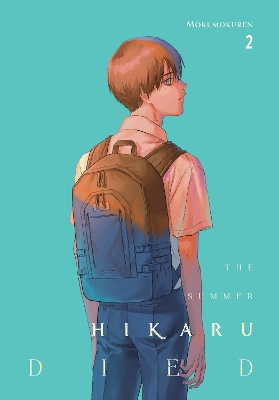Περιγραφή
In The Summer Hikaru Died Vol. 2, the haunting atmosphere of the quiet mountain town becomes even more suffocating as Yoshiki is forced to confront the terrifying truth—his best friend Hikaru is no longer the boy he once knew.
A strange entity wearing Hikaru’s face continues to act like him, with small cracks in the illusion appearing more frequently. Despite the deepening bond between Yoshiki and this “Hikaru,” the weight of knowing what lies beneath the skin festers, drawing Yoshiki deeper into fear and emotional conflict.
As the townspeople begin to sense something is wrong, subtle but chilling supernatural events begin to escalate. Shadows flicker where they shouldn’t. People act strangely. The line between love, grief, and horror continues to blur.
This volume delves deeper into the psychological tension, exploring the complexities of identity, mourning, and human attachment—wrapped in an eerie, beautifully illustrated narrative that balances serenity with dread.
Main Themes of the Book
- Grief and Denial: Yoshiki’s struggle represents a painful yet compelling confrontation with death and letting go.
- Identity and Humanity: What makes someone who they are? The being that looks like Hikaru raises difficult questions.
- Emotional Horror: This isn’t a story of jump scares, but one of intimate fear, slow dread, and emotional unraveling.
- Friendship and Loneliness: Yoshiki’s connection to Hikaru transcends the natural, making the loss—and what replaces him—even more heartbreaking.
Why you should read this manga
- A rare blend of psychological horror and tender emotional storytelling.
- Gorgeous, atmospheric artwork that captures both beauty and terror.
- A deeply human story told through a supernatural lens—perfect for fans of The Girl From the Other Side or Panorama of Hell.
- Raises questions about identity, memory, and the complexity of human bonds.
- Volume 2 builds narrative tension and moral ambiguity in a masterfully subtle way.
The Summer Hikaru Died Vol. 2 is a haunting continuation that leans deeper into its psychological and emotional horror roots. Mokumokuren crafts a deeply melancholic yet unsettling tale of love, loss, and what it means to hold onto someone who is no longer truly there. This is horror that lingers—not through shock, but through sorrow.










